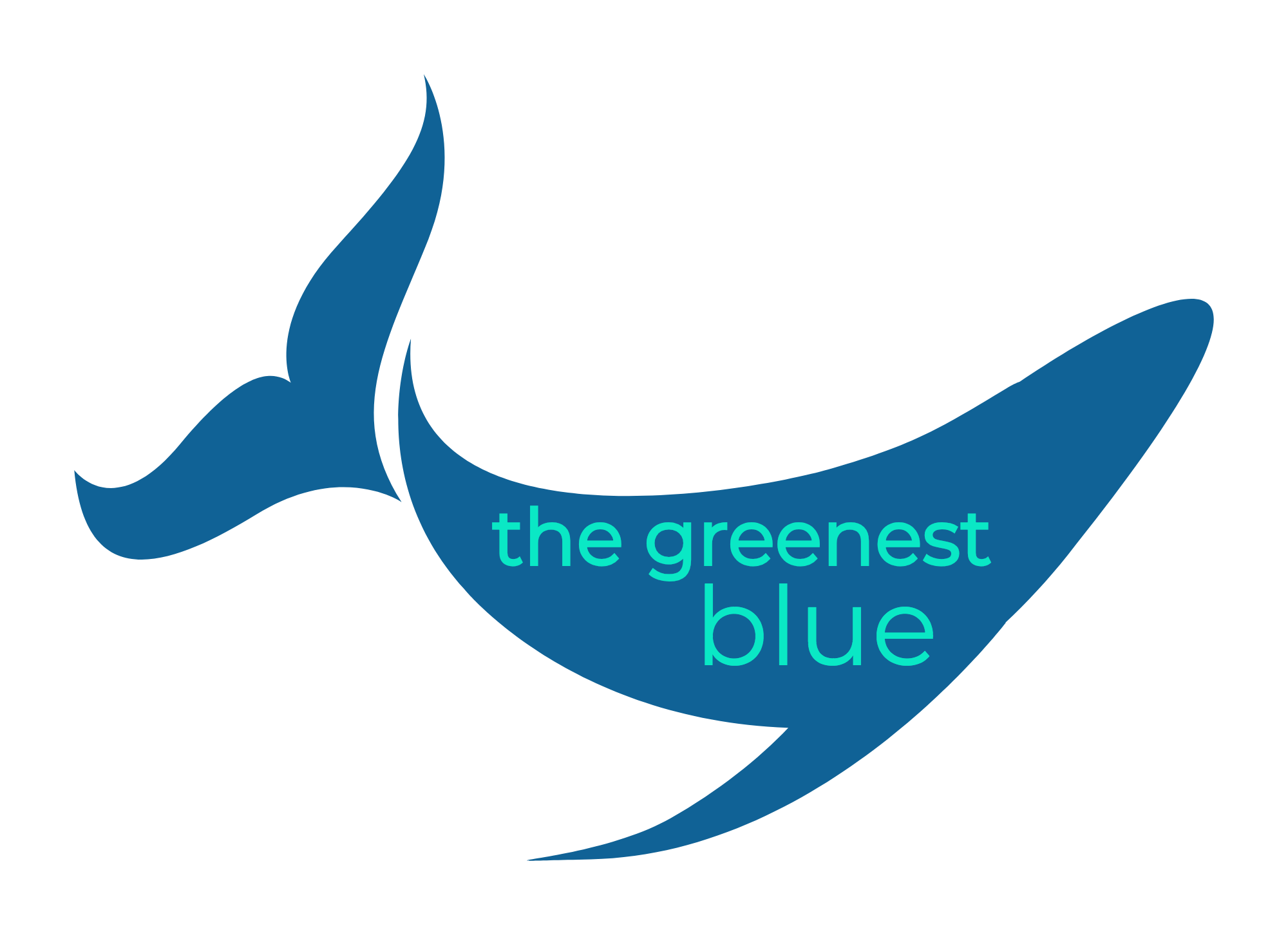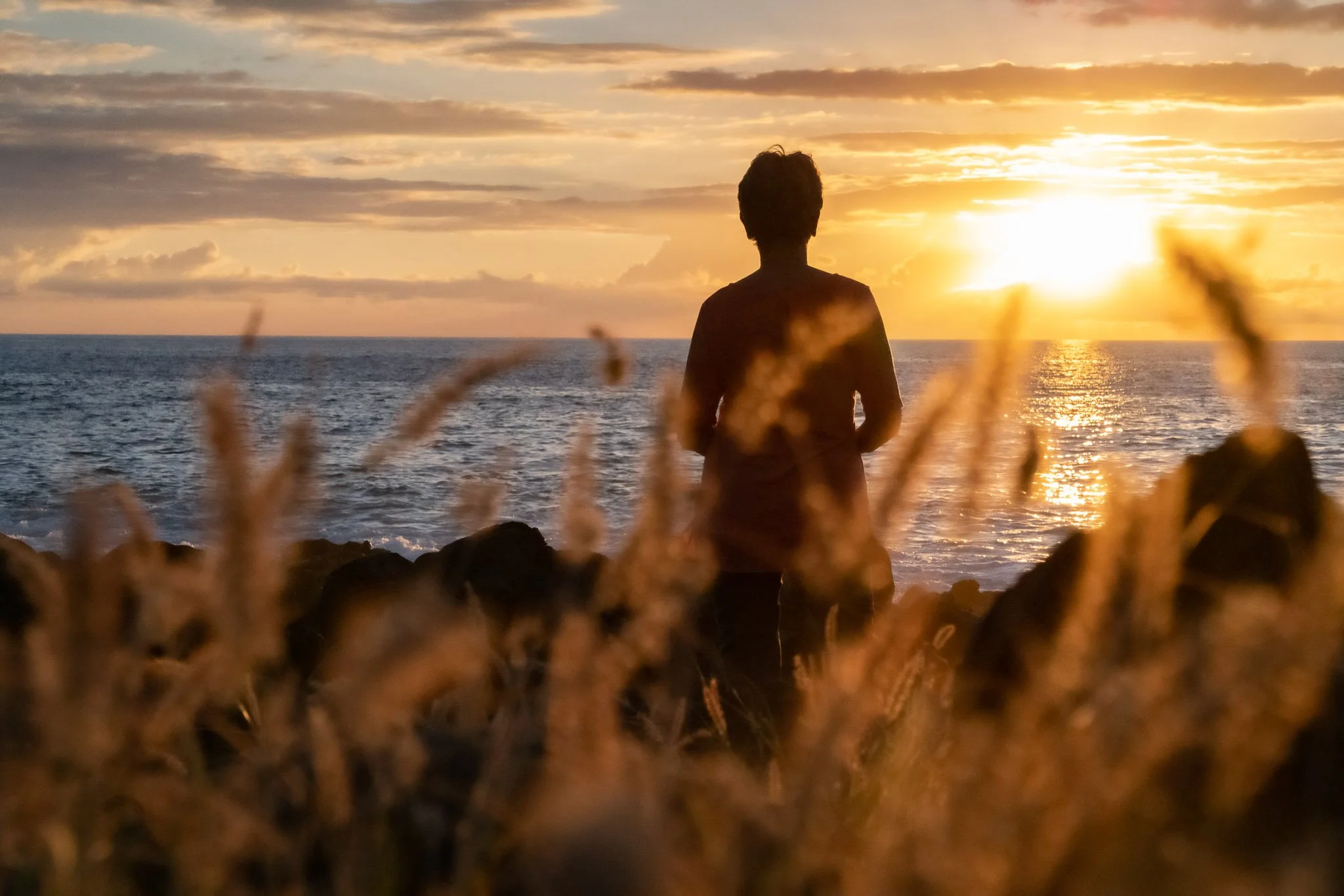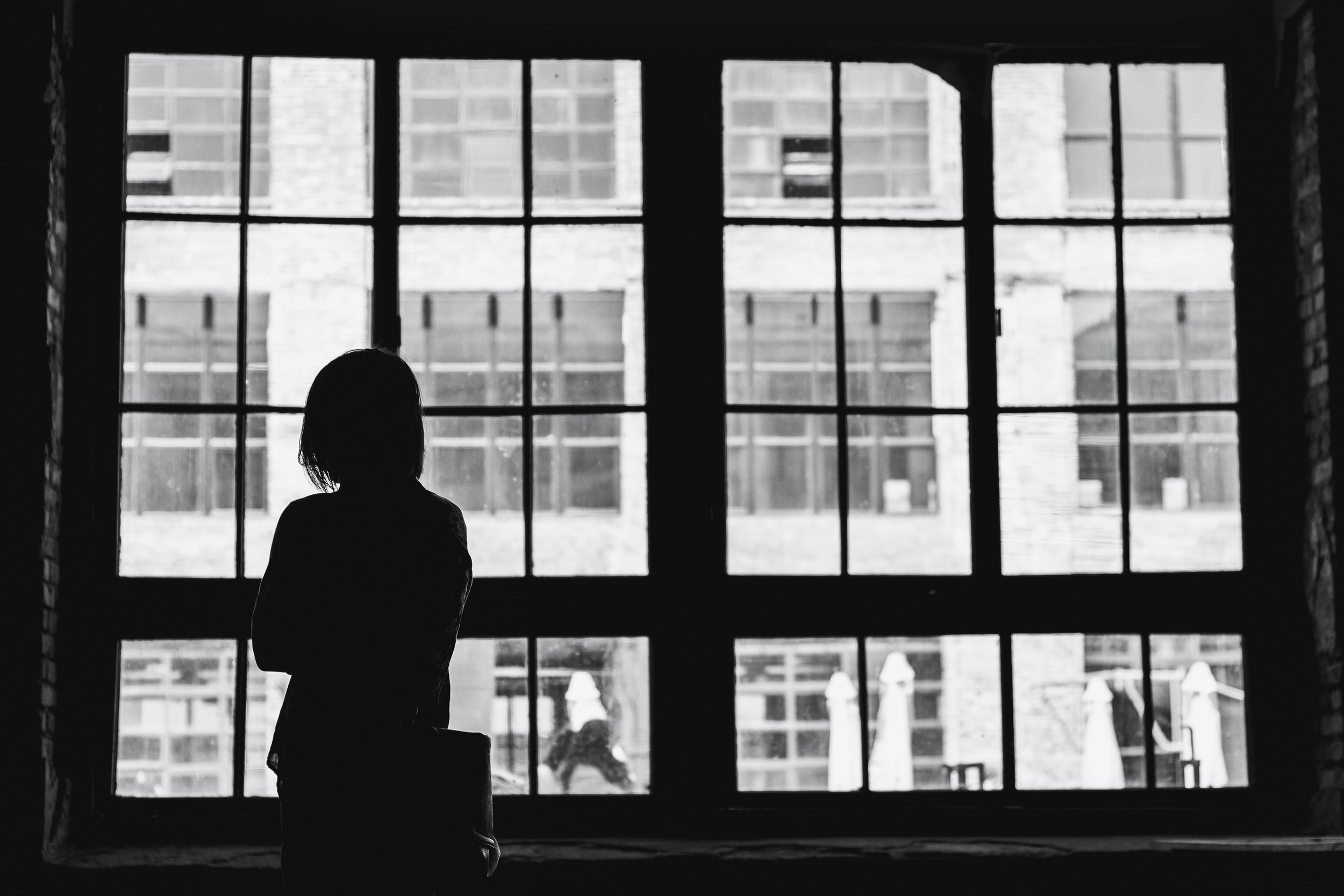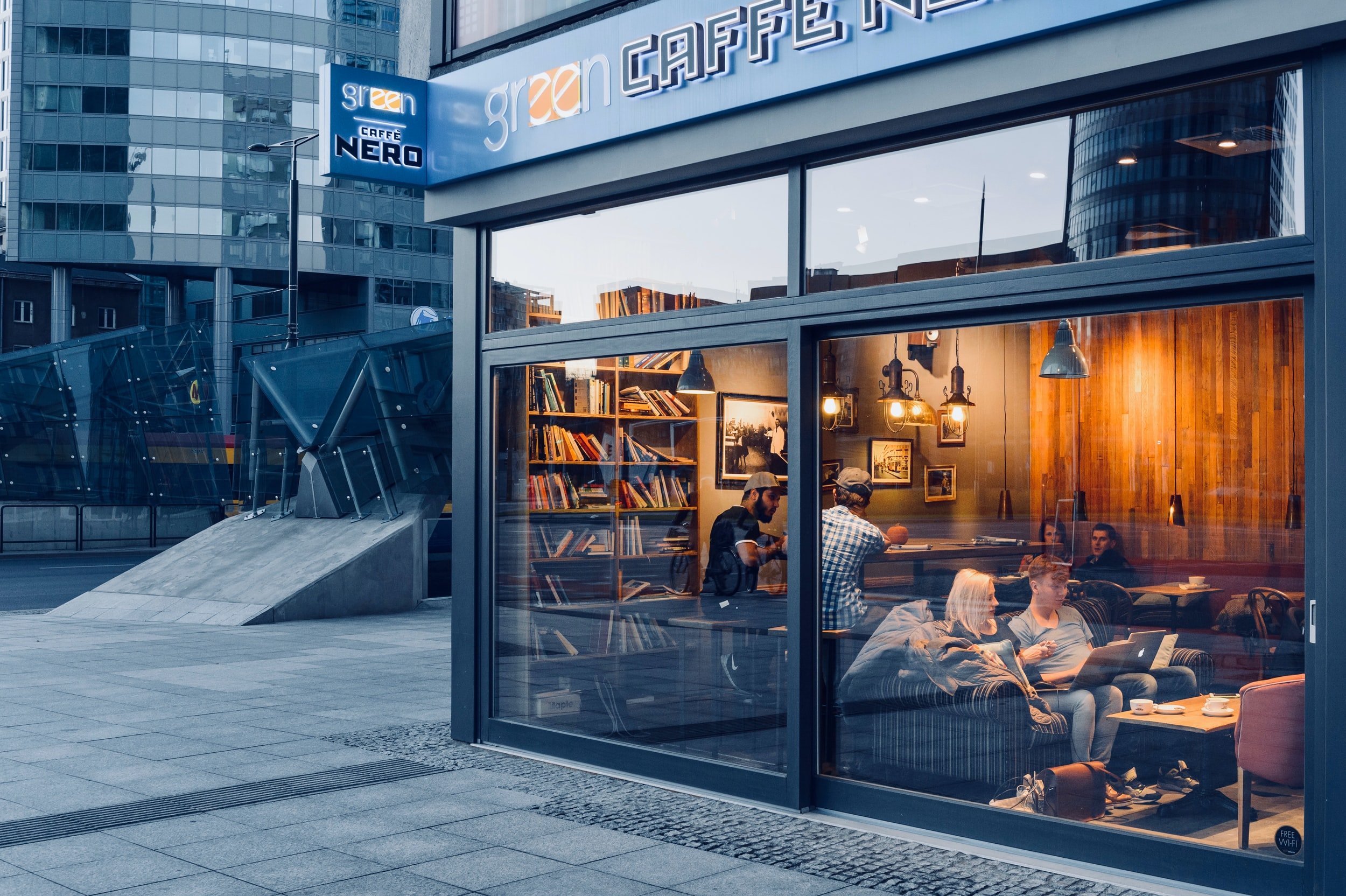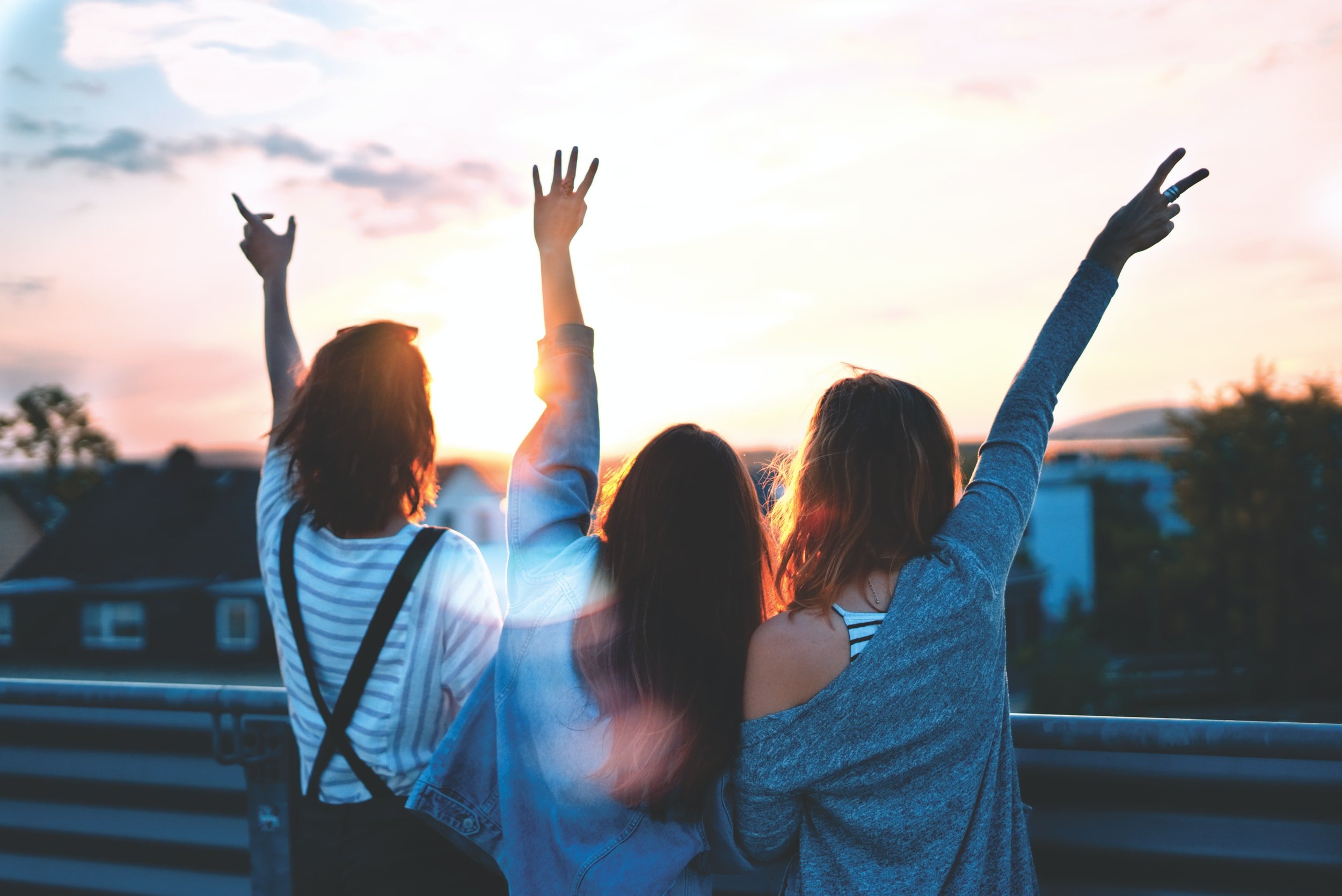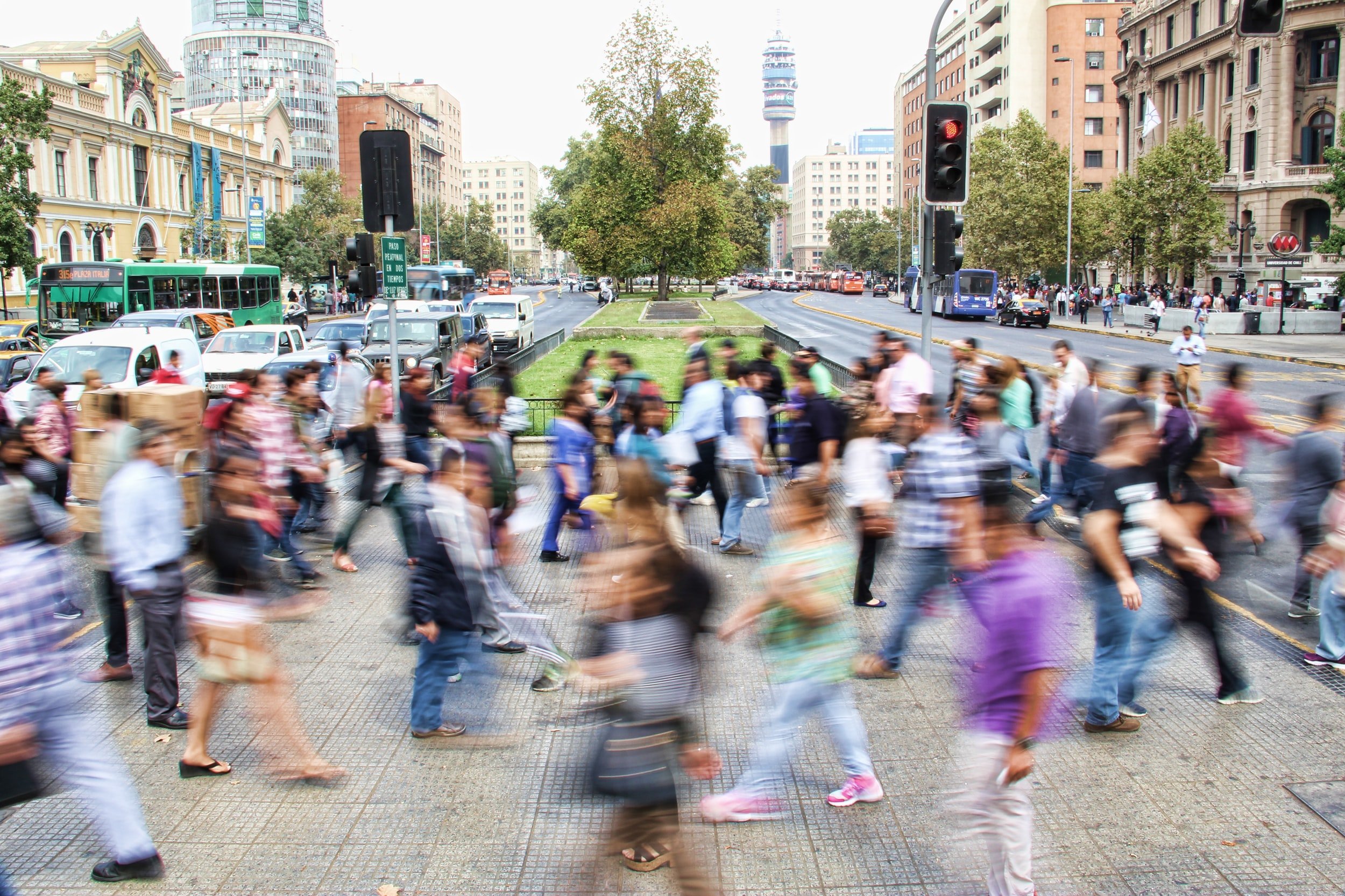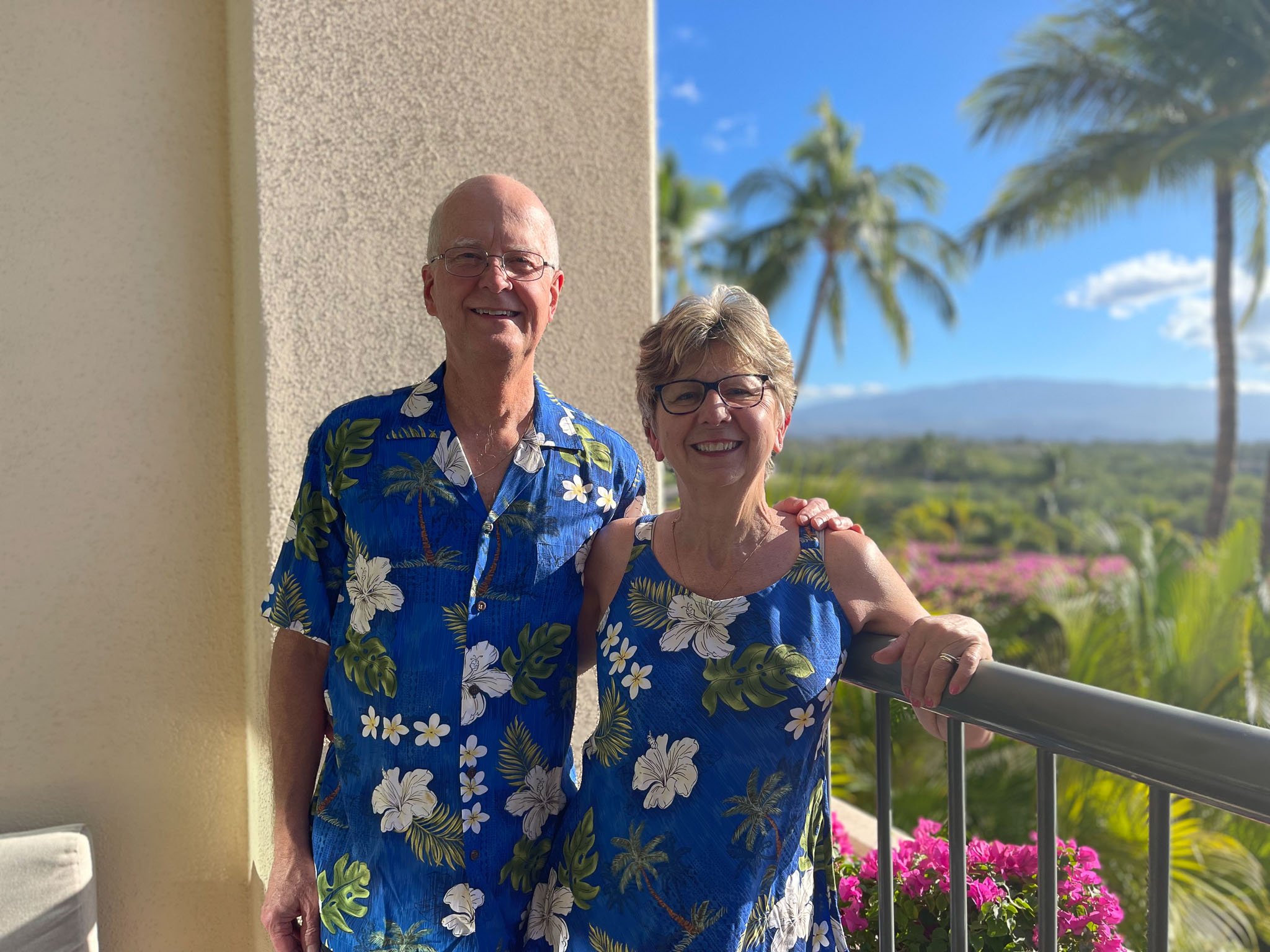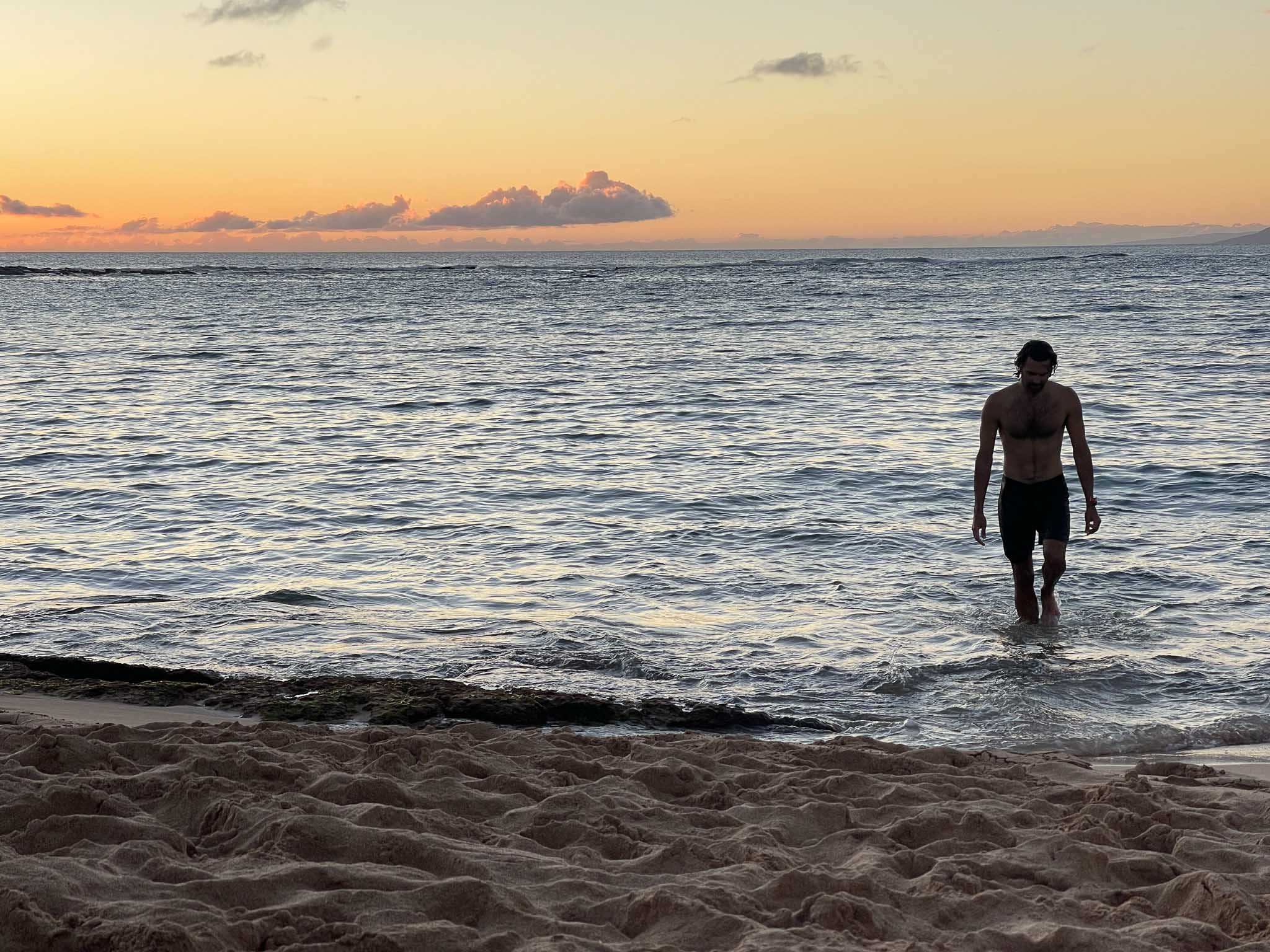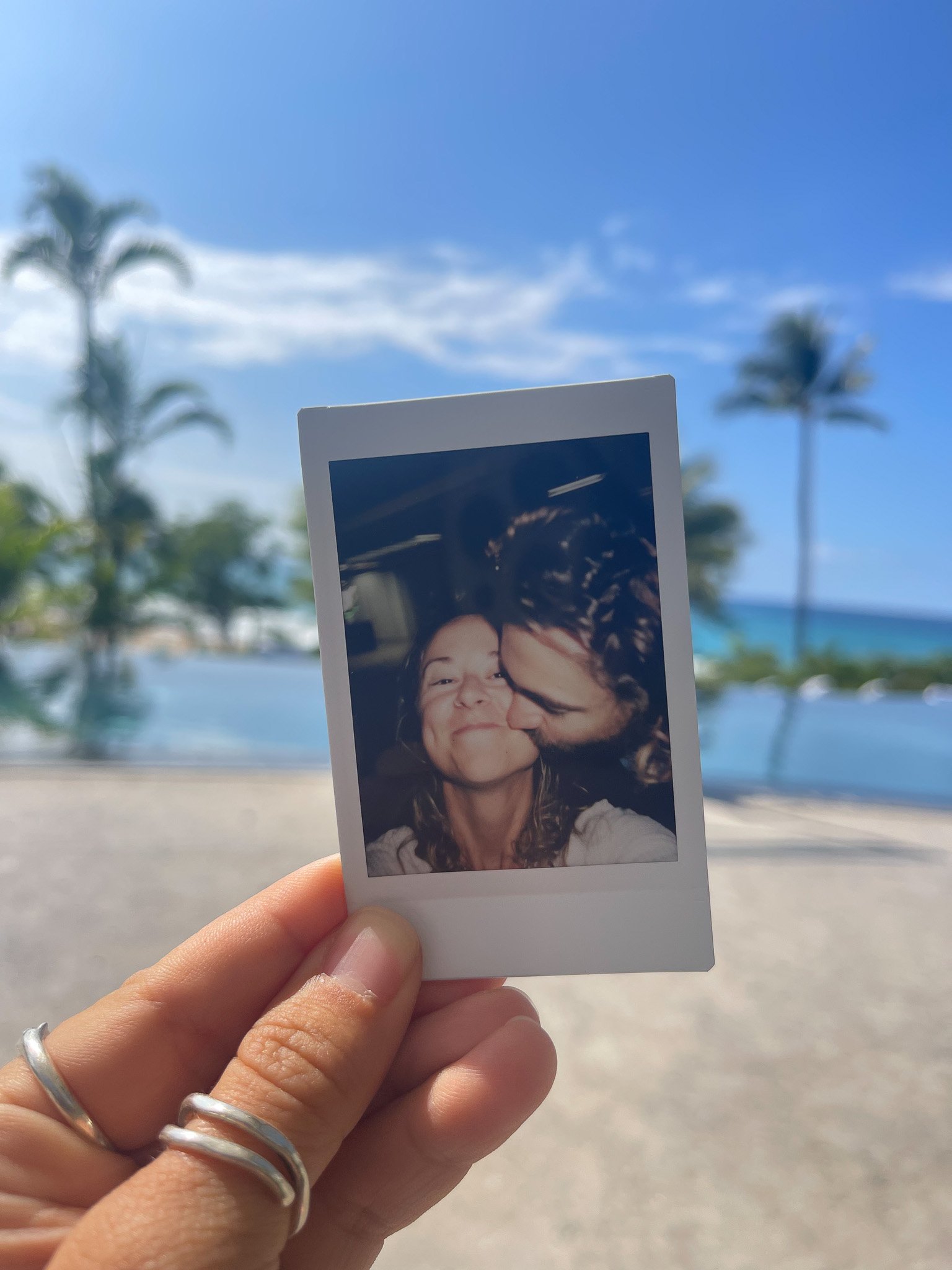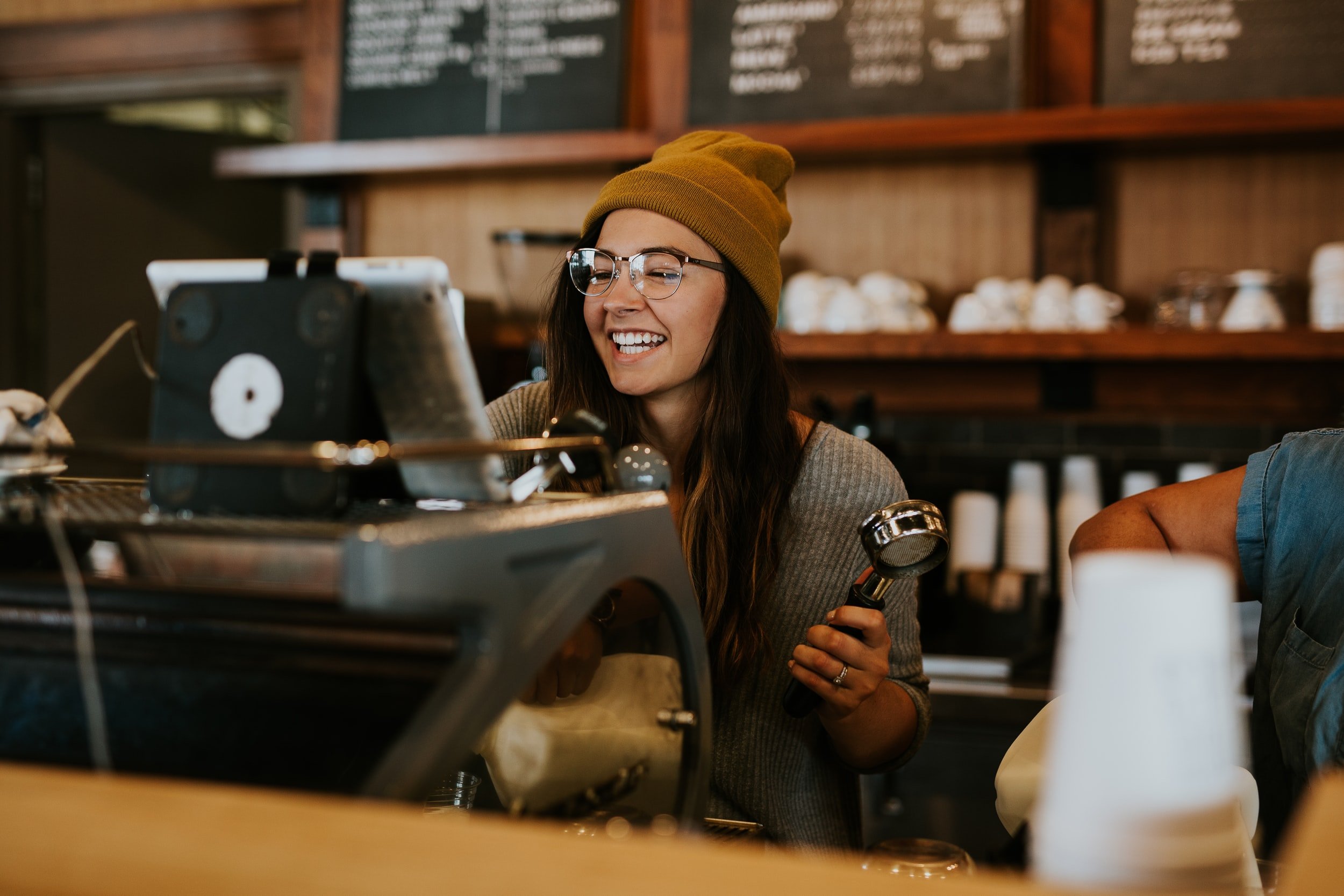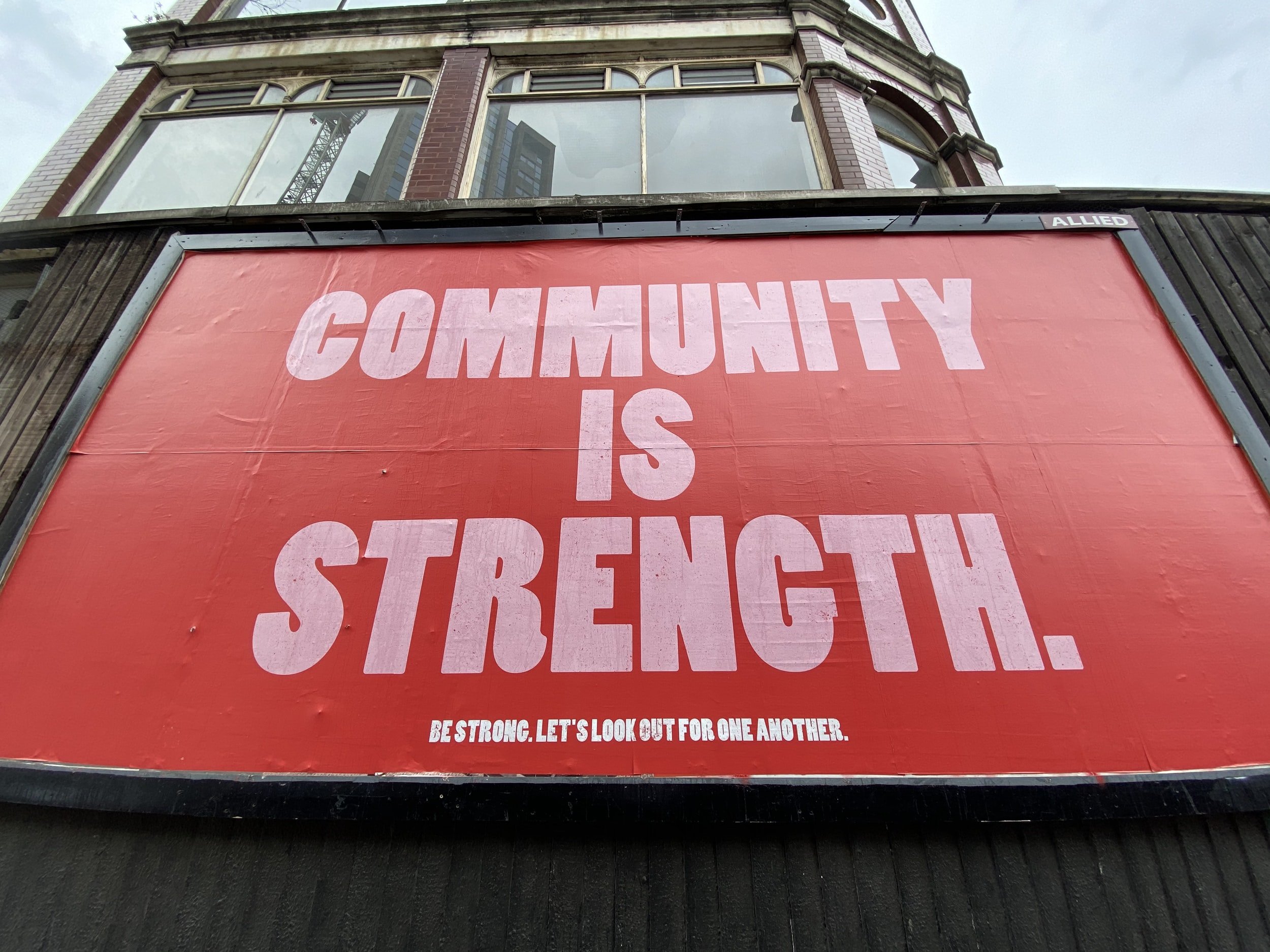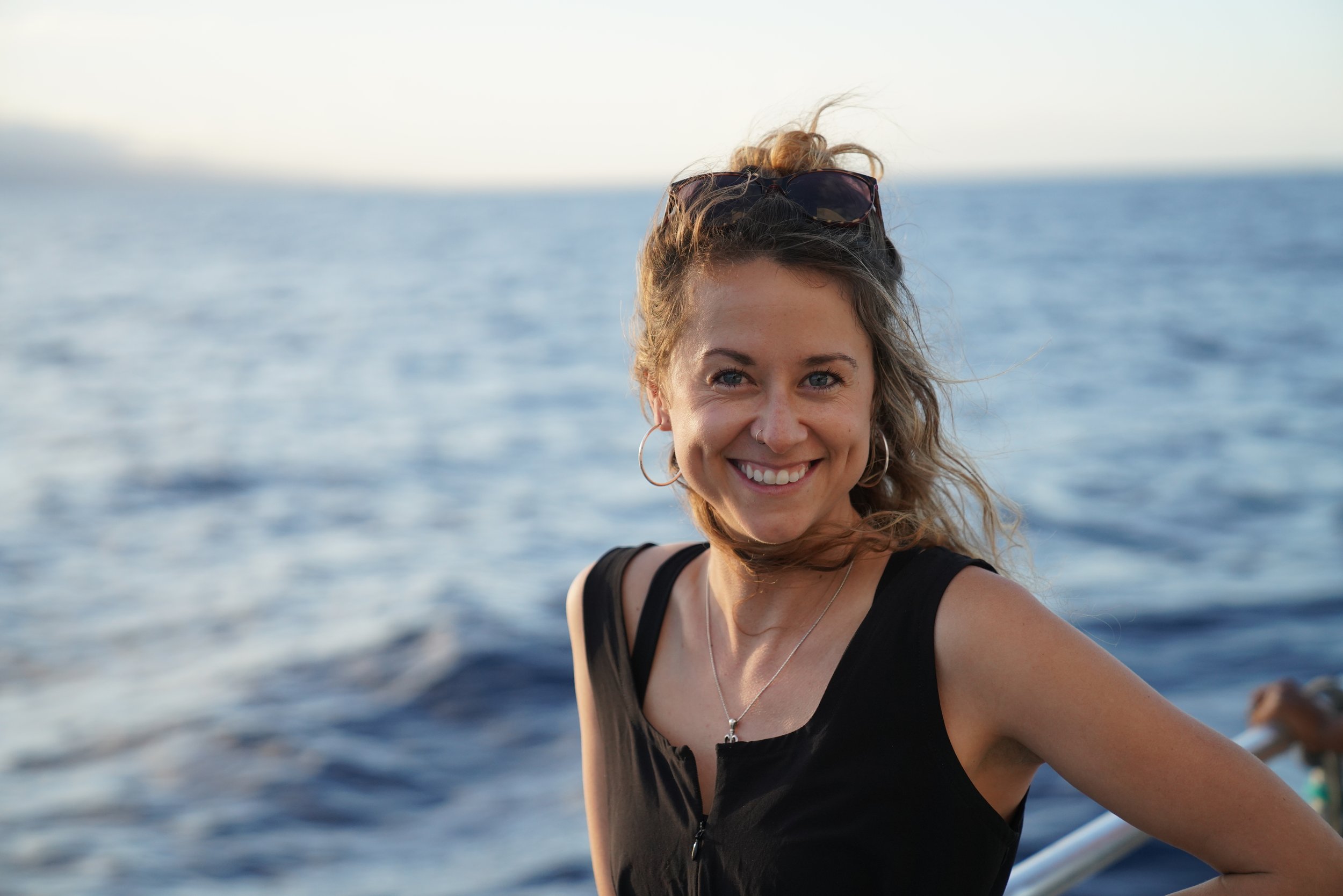No Matter Where You're At in Life, This is What Every Single One of Us Needs
This post contains affiliate links, which earn me a small commission on products I’m already in love with. This is at no extra cost to you! Thank you for supporting The Greenest Blue.
Disclaimer: this post dips down into some existential feelings and questions, but I feel they are important topics to ponder. Without evaluating why we’re on this planet, we are missing out on one of the greatest opportunities to find our pulse and save the broken relationships that have been destroying the natural world (and maybe our souls? At the risk of sounding dramatic, because I am).
Big Island Sunset, Hawaii. Mom.
Something somewhat poisonous has been brewing in my psyche over the last twelve years, and it wasn’t until this last month that I finally gained some more comprehensive clarity as to what that might be. I had some help, as I often do, from a book and an author who speaks her truth so vividly, curiously, creatively, and with such an awareness that I couldn’t help but stop and pause. And her words brought forth the beginning of a period of processing where I was able to look back and identify certain trends in my feelings over the last decade. There was an underlying commonality to much of the discomfort I’ve been experiencing.
What has manifested as uncertainty…self-inflicted pressure and unrealistic standards…negative self-talk…crippling indecision…commitment-phobia…insecurity…selfishness…anxiety…was a concrete problem that I believe many of us are facing. The symptoms may vary greatly depending on the individual. But the signs are all over our disjointed society. Loneliness.
Humanity is struggling with a severe lack of connection and a sort of perma-adolescence, stemming from our individualistic society.
It seems so obvious. You’ve probably heard the term “lack of connection” a million times. You’ve probably pointed it out yourself too. “Why am I always on my phone at dinner?” Or maybe you’ve pointed it out in other people. “Why is she always texting me she wants to hang out, but always flakes?” You keep your head down on a busy street instead of sharing smiles. You scroll on your phone instead of chatting to your Uber drive. Headphones on in the bus, grocery store, dog walk. We’re losing something.
It isn’t just technology creating barriers, though social media and constant digital connectivity don’t make it easy. There’s a whole system working against us, working against the planet. I often wonder if I should simply point the blame at money, and at risk of bringing up a term that I am still trying to fully understand, neoliberalism. The Guardian explains how this ideology sees “competition as the defining characteristic of human relations.” Individualism is at its core. Those who fall behind in this world are labeled as lazy, improvident, feckless. We are competing with each other. The idea is that someone is always going to lose out, and we need to be the ones to win. We are defined as consumers, and our power lies in buying and selling. The “humanity” aspect of our nature is cast aside. There’s a lot more to it than that, but for the sake of getting to my point, I just want to point out the symptoms of neoliberalism in our world: epidemics of self-harm, depression, general anxiety, eating disorders, social anxiety, and loneliness. So…much…loneliness.
And what about this perma-adolescence? This individualistic attitude is so intertwined with the way our society operates, and not even just from an economic or political standpoint. I’ve noticed how ingrained it is in our self-help culture. The need to constantly prioritize ourselves first (which yes, can be so beneficial to our mental health) can be taken too far, to the point where we forget what it’s like to be a part of a community. We’re taught that to succeed, to make money, to provide for ourselves and our future families, we need to focus on our individual needs and put ourselves first. It’s a cutthroat world out there. We’re competing for jobs and grades, we’re marketing products in attempts to prove they’re the best ones while ripping our planet of its resources, we’re fighting for people’s attention and money, we try to get as many academic papers published as possible in order to gain tenure or credibility, forgetting the passion for the actual science because there is no time to simply be passionate.
Adolescents, in their sweet years of growth and hormones and change, are often labeled as individualistic and a bit selfish and compassionate. To be quite fair and to give them some credit, their prefrontal cortexes aren’t fully developed yet. They have an excuse. But in today’s society, when you really stop to pause and look around at all the disasters and shortcomings and traumas and disconnect, you might notice that full-grown adults are stuck in this same adolescence, but with no biological excuse. It’s a mindset that many of us have been taught, and no one particular person is at fault. But when we awaken to this reality and really start to notice that things are off-balance, we do have a responsibility to change the way we embrace the ideologies that we want our society to be built off of.
I’m not going to rant on about this, but I did feel that this bit on connection and perma-adolsence was worth sharing, as it directly relates to my grad school experience and, arguably, most people’s current reality. And I’d like to highly recommend reading Sarah Wilson’s new-ish (2020) book This One Wild and Precious Life. It won’t resonate with everybody. But it grabbed me by both sides of my head in a kind, compassionate way while also shaking me awake from my numb, anxiety-ridden slumber. Some might find it preachy. Some might find it political. Some might label her as entitled or hypocritical. But it resonated with me, and sparked some interesting and important trains of thought. To me, that is noteworthy.
I also want to note that I am not a mental health expert, by ANY means. I applaud all the wonderful people who are, including my therapist and the wonderful people at Counseling and Psychological Services at UCSC. But I ponder and write a lot about mental health, because to me, the negative mental health trends that are pervasive among young people (and older people, but I’m just speaking to the peer group I know) are entirely inexcusable. I find myself worked up into a rage when I wonder how we got here as a society, demanding so much of the wrong actions from our young people and so little of the right ones. It’s making us sick. Why is this so normal? I see it very acutely amongst graduate students, and it makes me sad how we laugh and joke about our breakdowns and overwhelm and stress and the overall chaos of being in a graduate program. I’m all for normalizing our negative emotions, like our anxiety and depression (because we are not weird or different or weak for having them), but I want to go deeper than that and ask why we even need to normalize it in the first place.
We are missing shared connection over simply being human. We are not machines.
It’s the individualism that is severing our ties with each other, weaving through the deepest roots of society. The ways we’re trying to reconnect are failing us drastically. The pandemic didn’t help. It ripped apart our society at the seams and showed us how very disconnected we are. It became impossible, or anxiety-inducing, or at least more challenging, to meet a friend for a coffee, lunch, dinner, happy hour. Virtual versions of those events just weren’t the same. Money may have been scarce. Face-to-face interaction, scarcer. Connection isn't just about the exchange of words. It’s body language. It’s committing your time, energy, and attention to another person for a period of time. It’s shared moments in shared places. Words are, of course, so very important, but so is true, meaningful time spent in shared space.
I think many of us realized how critical connection is for us during the pandemic, and how much we’ve taken for granted, and how much the current system is failing us – the system of me me me. Do you ever feel like you just don’t have the time or energy to make plans with friends? Or you try, but someone flakes? Or you’re so tired from work or studying that you’d rather just numb out and watch TV? Or you’re fearful of strangers, so you don’t talk to anyone you don’t know? We’re tired. We’re burning out. We don’t trust each other anymore. There is a lot being demanded of us to “succeed” in this society today, and though some of us buck the system and choose alternate paths, this “pull yourself up by the bootstraps and get to it” mentality is still ingrained in a lot of our psyches.
I’ve seen encouraging signs that things might be changing. Four-day workweeks, more emphasis on time off, more work-life balance, better pay. There are more meet-up groups, community events, art shows designed to bring people together. It’s still not a norm. And so many of us continue on, wondering if we’re doing it right, if we’ll be rewarded in the end, if it’s going to get better.
I think these feelings, for many of us, have the opportunity to be a wake-up call. A spiritual wake-up call, if that’s something that resonates with you, a door you’re willing to open. Connection is what we need, and we – each and every one of us, at the individual level – need to be the ones to bring it back into the world. Many of us might find it beneficial to “grow up” and step out of this adolescence, simply by becoming of aware of this disconnect and making some simple changes. No one else is going to make you connect with anyone. And doing so doesn’t mean you need to release all of your introvert tendencies (if you’re an introvert) or stop spending “you-time.” Quite the contrary. Do all of those things. And please absolutely take care of your mental health, and if you have the resources available to seek and ask for help, please please do. I hope we live in a world one day where it is accessible to everyone.
But on a day-to-day basis? Maybe stop and talk to your barista. Comment on that random person’s cool sweatshirt. Collaborate with someone on a creative project. Ask for help. Try new things and hobbies, or bring back time and space for old ones. Offer your stories to someone younger who is seeking inspiration. Make plans with your friends and actually stick to them. Instead of focusing so much on time management, focus on energy management and save some space for the ones you love. Set boundaries so you don’t have to flake. Don’t ask too much of yourself. But maybe ask for something different.
Can we find ways to bring our talents and gifts and stories to the world in a meaningful way? Can we stay humble, and open, and curious enough to give others space to share their talents and stories and gifts?
There are so many wonderful people on this planet. it’s easy to want to shun society these days, I understand that. It’s easy to say “f*** it” and just keep go on doing whatever you want to do. But at my core, I have this feeling that if we push ourselves to be a little uncomfortable for the sake of building our community and contributing to something bigger than ourselves, there is a much more resilient and compassionate world waiting for us.
—
I moved to the west side of Santa Cruz this past month after spending several weeks in Hawaii with my partner, Chris, and my parents. Classes were remote for the first month of the quarter, and I decided to stay with my community in a place that is very comfortable and familiar to me: Maui. Now that I’m back in California, I’m trying to build new routines for myself. I want to bring back my morning meditation. I’m trying to bike to the farmer’s market every week. Last night, I biked downtown at 7 pm on a Saturday just to go to the bookstore and be in a wholesome environment. I knew some of the coolest people would be perusing the shelves on a Saturday night.
I’m setting at least one full day off each week for no work, school or otherwise. This time is sacred. Our energy is sacred. Take care of yourself, so you can be the best you for the community.
Community.
Connection.
Integrity.
